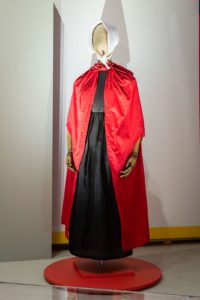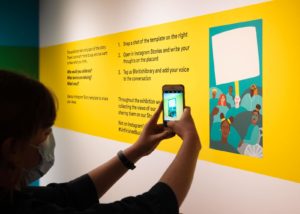Gender equality is unfinished business.
Women’s rights in the UK have come a long way since The London Society for Women’s Suffrage was formed in 1867, from gaining the right to vote to the decriminalisation of abortion and the first female Prime Minister. Yet, there is still work to do. Though some might argue that in the 21st century there is no longer a need for feminism, Unfinished Business: The Fight For Women’s Rights, a new exhibition at the British Library, rebukes this idea entirely, demonstrating that the path to equality is far from over. As stated in the exhibition guide, “not all women enjoy the same rights, depending on their race, class, disability, sexuality or the way they express their identity.†Focussing on the UK, Unfinished Business brings light to the incredible women and campaigns that brought about change.
The British Library is the UK’s national library, giving access to the world’s most comprehensive research collection. Its extensive collection of over 170 million items – including newspapers, sound recordings, prints and maps – includes artefacts from every era of written civilisation.
Drawing from this collection, as well as items lent to the library, Unfinished Business illustrates the deep-rooted history of feminist activism in the UK and introduces a range of contemporary organisations continuing to campaign for equality. Split into three sections, Body, Mind, and Voice, the exhibition explores the history behind these campaigns through a range of mediums, such as video, personal diaries and even protest fashion. Some of the highlights include:
- The weighing scales smashed by Jameela Jamil in response to a body shaming meme in 2018
- A first edition of Mary Wollstonecraft’s A Vindication of the Rights of Women
- The personal diary of Sophia Duleep Singh, one of Queen Victoria’s goddaughters who used her status to campaign for women’s suffrage in the UK, alongside records of surveillance carried out on her

Handmaid’s costume worn in recent women’s marches on display at Unfinished Business exhibition at the British Library
I had the pleasure of visiting Unfinished Business: The Fight For Women’s Rights but, due to social distancing restrictions, the exhibition is shown through a one-way system. I think this works well however, as the exhibition begins with a look at statistics within the UK (for example the pregnancy mortality rate compared to other countries in the world), before travelling through the Body, Mind and Voice sections respectively. Ending the exhibition, you are asked look towards the future of feminism in our society. Within each section the items were organised comprehensively behind glass cabinets, with protest fashion and banners hanging freely about the room. These banners show various feminist thinkers ranging from Simone de Beauvoir to Audre Lorde hang, and give a brief summary of their contributions to the sphere of feminist theory and the women’s rights movement.
Moving about the exhibition whilst learning about the history of women’s rights is a very surreal experience, not least because you realise how far we’ve come in some respects, but not in others. The figure that was most shocking to me was that in the 16/17 academic year, there were only 25 Black female professors teaching in higher education across the UK. Lead curator Dr Polly Russell also draws on Covid-19 as a stark reminder of the inequalities that still exist, saying “Covid-19 and the renewed focus on the Black Lives Matter movement have highlighted that the injustices we face are often dependent on our gender, race, or other social characteristics.â€
While I enjoyed all three sections for different reasons, the most attention-capturing exhibit for me was the Vulva Quilt, conceived and spearheaded by Tara Scott and made by a range of people across the world. The quilt, a traditionally female craft used for radical purposes, counters the shame felt around women’s bodies and attempts to raise awareness about Female Genital Mutilation. The quilt has been used in campaigns both in the UK and across the world in order to empower and support the rights of women and girls at risk of FGM. As there is typically a taboo that surrounds women’s bodies, the display of so many patchwork vulvas, all of which are beautifully made, really challenges this idea of women’s bodies being shameful.
Unfinished Business, is not just an exhibition, however. There is a season of digital events that aim to discuss the issues featured in the exhibition more broadly. Events include:
- Literary activist, writer and playwright Khadijah Ibrahiim hosting an evening of artists and poets from Yorkshire to explore women’s voices, activism and the fight for a fairer world
- Writer, lecturer, editor, political activist and feminist organiser Gloria Steinem in conversation with broadcast journalist and presenter Zeinab Badawi
- Emeritus nursing professor Elizabeth Anionwu discussing her campaign for a statue of British-Jamaican entrepreneur and nurse Mary Seacole (1805 – 1881), which was unveiled in 2016 and was the UK’s first statue to represent a named black woman

David Jensen
Alongside these events, the British Library also invites you to share your experiences of women’s activism on social media via the hashtag ‘#UnfinishedBusiness’.
Overall, Unfinished Business: The Fight For Women’s Rights is an insightful and fascinating exhibition, showing the scope of women’s rights campaigning in Britain as well as demonstrating what more has to be done.















